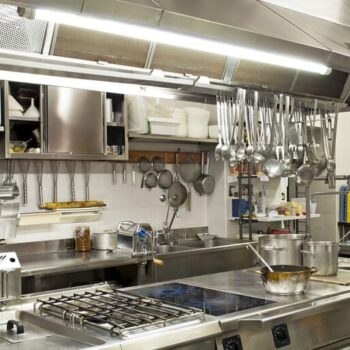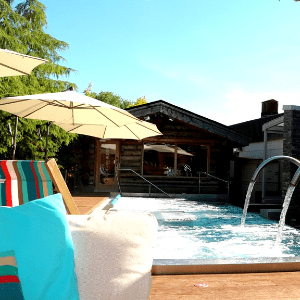 Designing an efficient hotel kitchen is crucial for ensuring high-quality service to guests while maintaining cost-effectiveness and operational efficiency. This guide will walk you through the essential steps to create a kitchen that meets the demands of a busy hotel environment, focusing on simplicity and functionality.
Designing an efficient hotel kitchen is crucial for ensuring high-quality service to guests while maintaining cost-effectiveness and operational efficiency. This guide will walk you through the essential steps to create a kitchen that meets the demands of a busy hotel environment, focusing on simplicity and functionality.
Understanding your needs
- Assess the size and type of hotel: The kitchen’s design heavily depends on whether you’re running a boutique hotel with a quaint dining area or a large hotel with multiple dining venues. The size influences not only the physical space needed but also the variety and quantity of equipment required.
- Determine the menu range: Your menu choices directly impact the kitchen layout and the appliances needed. A broader menu requires more versatile equipment, while a more specialized menu might need specific tools.
- Calculate expected guest numbers: Knowing your capacity will help in scaling your operations appropriately. It’s crucial for planning the size of your storage areas and the capacity of your cooking appliances.
Layout planning
A functional layout is the backbone of an efficient kitchen. It should minimize unnecessary movement and ensure a smooth flow from one task to the next. Consider dividing the kitchen into distinct zones:
- Cooking zone: The area for stoves, ovens, and microwaves.
- Preparation zone: Includes chopping areas and equipment for food prep.
- Service zone: Where food is plated and passed to the service staff.
- Washing zone: For dishwashing and cleaning, ideally placed away from the cooking and preparation areas to avoid cross-contamination.
Workflow optimization is about creating a logical sequence from receiving and storage to food preparation, cooking, service, and finally cleaning. This reduces bottlenecks and maximizes efficiency.
Equipment selection
Selecting the right equipment is crucial for a kitchen’s efficiency. CabinetSelect offers a range of kitchen cabinets that are perfect for efficiently organizing your hotel kitchen, ensuring that everything has its place and is easily accessible. When it comes to equipment then focus on:
- Essential kitchen equipment for hotels: This includes commercial-grade stoves, ovens, refrigerators, and dishwashers. Each piece should cater to the volume of food you plan to prepare.
- Energy-efficient and multifunctional appliances: Opt for appliances that serve multiple purposes and consume less energy, reducing operational costs.
- Space-saving solutions: In smaller kitchens, every inch counts. Look for compact designs or equipment that can be installed under counters.
Safety and hygiene standards
Ensuring the safety and health of both staff and guests is non-negotiable. Your kitchen design must comply with local health codes, which cover a range of requirements from food storage temperatures to the prevention of cross-contamination. Key points include:
- Easy-to-clean surfaces and materials: Opt for materials that can withstand heavy cleaning and use. Stainless steel is a popular choice for surfaces because it’s durable and easy to disinfect.
- Ventilation and waste disposal systems: Proper ventilation helps remove cooking fumes and heat, while an efficient waste disposal system is essential for maintaining hygiene and preventing pest infestations.
Storage solutions
An efficient hotel kitchen needs well-organized storage for both cold and dry goods to ensure ingredients remain fresh and accessible. CabinetSelect offers a variety of storage solutions that can help keep your hotel kitchen organized and efficient, making the best use of available space. Here’s how to achieve this:
- Cold and dry storage needs: Separate your storage into two main areas: one for refrigerated items and another for items that can be stored at room temperature. This helps in maintaining the quality of different ingredients.
- Effective use of shelving and racks: Maximize vertical space with shelving and racks. Adjustable shelves can accommodate items of various sizes and clearly labeled shelves can help staff find items quickly.
- Managing inventory for freshness and accessibility: Regularly check inventory to remove outdated items and restock as necessary. Organizing items by use-by date ensures older stock is used first, reducing waste.
Energy efficiency
Adopting energy-efficient practices in your hotel kitchen can significantly reduce operational costs and contribute to environmental sustainability. Here are key areas to focus on:
- Choosing energy-saving appliances: Invest in appliances with high energy efficiency ratings. Modern refrigerators, dishwashers, and cooking equipment use less electricity and water, lowering utility bills.
- Efficient lighting and water use: LED lighting offers bright, efficient lighting for kitchens. Also, consider installing low-flow faucets to reduce water usage.
- Sustainable practices to reduce costs: Implementing sustainable practices, like composting food waste or recycling, can further reduce costs and minimize your kitchen’s environmental impact.
Staff and workflow considerations
The well-being of your staff and the efficiency of their workflow are crucial for a productive hotel kitchen. Consider the following:
- Ergonomic design for staff well-being: Design workspaces that reduce strain and injury risks for staff. Adjustable height counters and anti-fatigue mats can make kitchen tasks more comfortable.
- Training spaces within the kitchen: Allocate a specific area for staff training. This can be used for demonstrations of new equipment or cooking techniques, ensuring staff are well-prepared.
- Smooth flow between kitchen sections: Ensure there is a logical flow from one kitchen section to another, minimizing unnecessary movement. This includes clear paths for the delivery of ingredients to storage areas, from storage to prep and cooking areas, and finally to service areas.
Designing an efficient hotel kitchen is about more than just aesthetics; it’s about creating a space that supports the staff’s needs, reduces waste and costs through energy efficiency, and keeps ingredients fresh and accessible. By focusing on these critical areas, you can ensure that your hotel kitchen operates at its best, providing excellent service to your guests while maintaining a happy and healthy environment for your staff.

































